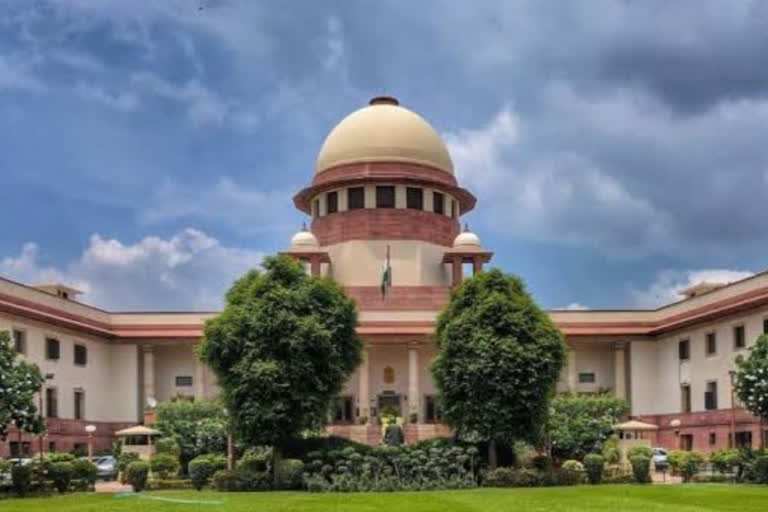New Delhi: A child born from the second wife of a deceased employee is eligible for compassionate appointment, the Supreme Court on Thursday said as it held that a policy, which has the force of law, must not discriminate on grounds including that of descent.
The top court said that while the compassionate appointment is an exception to the constitutional guarantee under Article 16, a policy for compassionate appointment must be consistent with the mandate of Articles 14 and 16 of the Constitution.
A bench of Justices UU Lalit, S Ravindra Bhat, and PS Narasimha set aside a Patna High Court order of January 18, 2018, and said that one Mukesh Kumar, cannot be denied consideration under the scheme of compassionate appointments only because he is the son of the second wife, and there shall be a direction to consider his case as per the extant policy of the railways.
The Authorities shall be entitled to scrutinize whether the application for compassionate appointment fulfils all other requirements in accordance with the law. The process of consideration of the application shall be completed within a period of three months from today, it said.
The bench said that once Section 16 of the Hindu Marriage Act regards a child born from a marriage entered into while the earlier marriage is subsisting to be legitimate, it would violate Article 14 if the policy or rule excludes such a child from seeking the benefit of compassionate appointment.
That is to say, a policy for compassionate appointment, which has the force of law, must not discriminate on any of the grounds mentioned in Article 16(2), including that of descent. In this regard, descent' must be understood to encompass the familial origins of a person. Familial origins include the validity of the marriage of the parents of a claimant of compassionate appointment and the claimant's legitimacy as their child, it said.
The bench said that the policy cannot discriminate against a person only on the ground of descent by classifying children of the deceased employee as legitimate and illegitimate and recognizing only the right of legitimate descendant.
Also Read:SC agrees to BJP leaders' plea seeking deployment of paramilitary forces in Bengal local polls
Apart from the fact that strict scrutiny would reveal that the classification is suspect, as demonstrated by this Court in V.R. Tripathi (2019 verdict), it will instantly fall foul of the constitutional prohibition of discrimination on the ground of descent. Such a policy is violative of Article 16(2), the bench said.
The bench referred to the 2019 verdict and said that this Court held that the scheme and the rules of compassionate appointment cannot violate the mandate of Article 14 of the Constitution.
